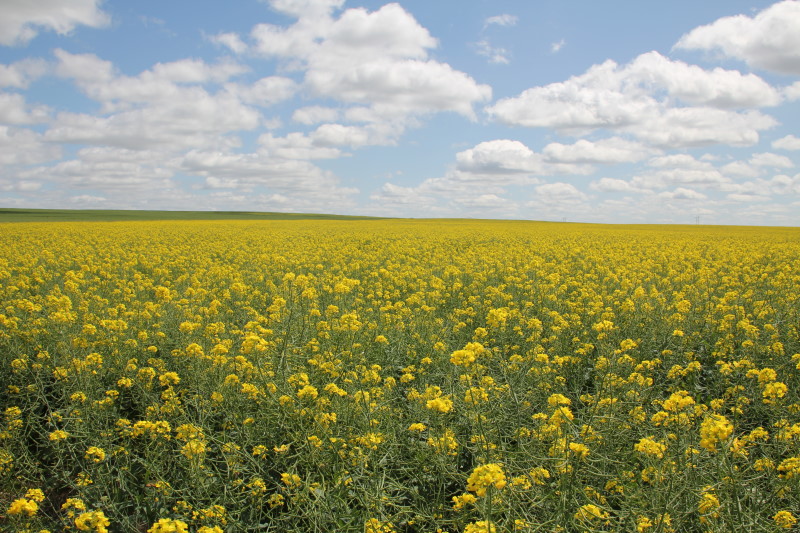
Agricultural News
Canola Conference 2014- Talking Weed Management with Dr. Angela Post
Tue, 05 Aug 2014 05:47:22 CDT

Extension Weed Specialist at Oklahoma State University, Dr. Angela Post, was able to offer a silver lining to those who were trying to grow canola this last year and ran into a growing season of virtually no rain and half a crop as a result. She tells Farm Director Ron Hays of the Radio Oklahoma Ag Network that the dry conditions were not conducive to very much weed pressure- and that as a result, "we didn't add much to the seedbank for this year."
Dr. Post was one of the speakers at the 2014 Canola Conference held in Enid the end of July, as she discussed the 2014 canola growing season and how producers may want to approach 2015 planting when it comes to weed management and control.
Her top recommendation six weeks ahead of the opening of the planting window for the 2015 winter canola crop is to consider a pre-emergent herbicide application, and that would be on acres where you plan to plant either conventional canola seed or Roundup Ready seed. Catching weeds early means less weed pressure in your fields and Post says that sets you up to not "potentially losing some yield potential if weed pressure ends up being heavy."
She tells Hays that the concept of treating for weeds early is not an easy sell in Oklahoma as producers are used to waiting on Mother Nature and then responding to the weather conditions- "we wait and wait until it rains to get our crop in the ground and then we wait and wait on those weeds to germinate so we can catch them all in that one application, but that's not the best way to manage weeds. An early application is always going to be better than waiting later and losingt that tield in the process."
You can listen to all of Angela's comments with Ron by clicking on the LISTEN BAR below.
Go here for the OSU website for Canola production to see the latest updates from Josh Bushong and others about this fall planted crop that matches up with winter wheat production in the state- brougght into Oklahoma to address continuous wheat weed problems in the southern plains.
WebReadyTM Powered by WireReady® NSI
Top Agricultural News
More Headlines...



















